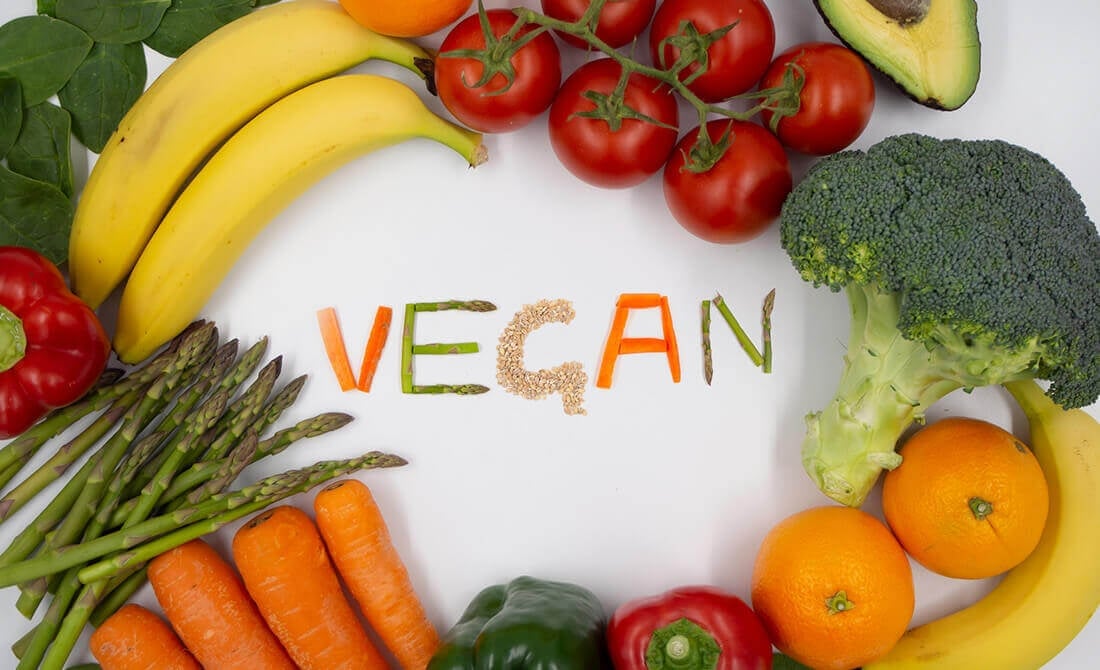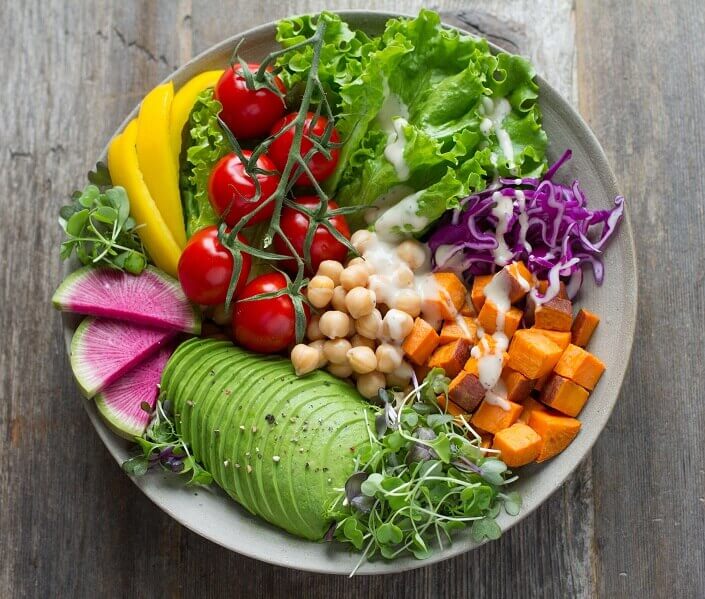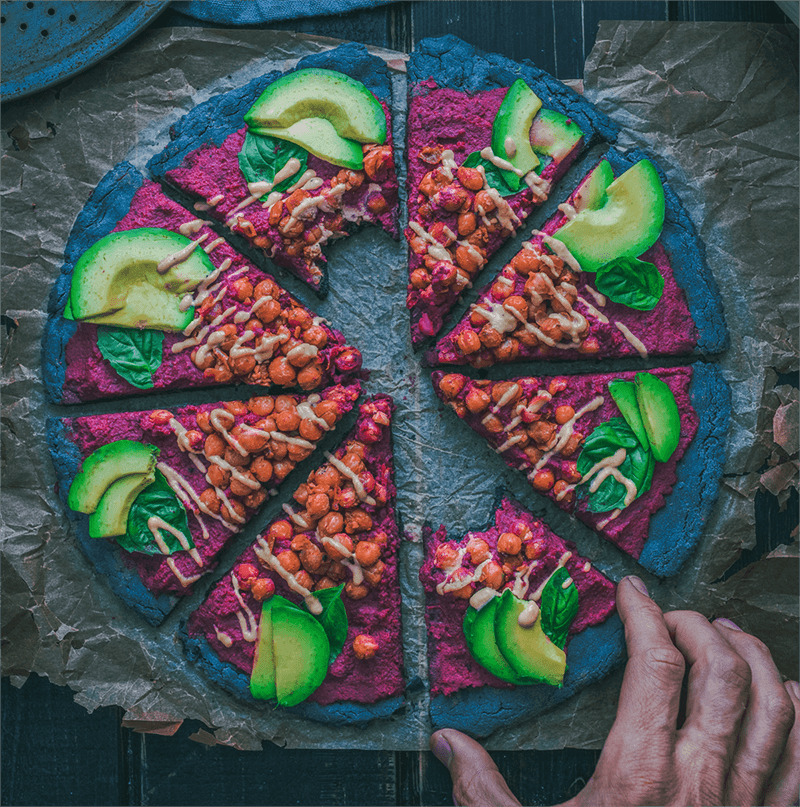4 mins read
How Do You Get Enough Protein on a Vegan Diet?

Because the main sources of protein are provided by animal sources, there is a misconception that those on a vegan diet may not get enough.
How much protein should we be eating?
Besides water, protein is the most abundant molecule in the body. It is a major structural component of every cell, particularly muscle, hair and skin. The reference nutrient intake (RNI) of protein for an adult is 0.75g of protein per kilogram of body weight per day. Based on this figure, this amount equates to approximately 56g/day for men and 45g/day for women, aged between 19 and 50.
Although the main sources of energy for the body are carbohydrates and fats, protein can also be used as an energy source if it is consumed in excess.
Foods which are good sources of protein include:
- Meat
- Milk
- Cereals
- Fish
- Vegetables
- Fruit
- Nuts and sees
- Eggs
Most of these protein sources are animal derived so for groups such as vegans it is vital they get their protein from other sources.
Good sources of vegan-friendly protein
If you are following a vegan diet, you will need to find alternative protein sources. According to The Vegan Society, plant foods can be good sources of protein, such as:
- Tofu
- Chickpeas
- Soya alternatives to dairy products
- Beans
- Lentils
- Peanuts
- Cashew nuts
- Quinoa
Proteins are made up of amino acids which are arranged in long chains. There are approximately 20 amino acids which are found in plant and animal proteins. Eight of these must be brought into the body via the diet and are known as essential amino acids. The other 12 amino acids are non-essential because the body can produce these itself and so they do not need to be acquired through the diet.
The complementary action of proteins is an important mechanism for vegans and vegetarians. So, for example, when we eat two foods containing protein, the amino acids contained in one food may compensate for the limiting effects of the other. Therefore, if a vegan or vegetarian eats a variety of plant proteins then it is thought the benefits of this should be no different to an individual whose protein comes from animal-derived sources.
“People are often surprised to learn how easy it is to get enough protein from plant foods. They can provide all the essential protein building blocks that we call amino acids. Balanced diets feature good sources of protein in most meals. Plant-based options include beans, lentils, chickpeas, soya products, peanut butter, cashew nuts and pumpkin seeds”, says Heather Russell, a dietitian from The Vegan Society.
Tofu
Tofu, also known as bean curd, is a soy-based food and a meat-free alternative. Tofu is an excellent source of nutrients including the building blocks of proteins, and amino acids.
Even though tofu has a reputation for being bland, it is a versatile meat-free option which complements many dishes. Plus, many of the major brands of tofu and other soy-based products are fortified with many other nutrient’s vegans need such as calcium, iron and vitamin B12.
Whole Grains
Whole grains are also a good source of protein. One of the best sources is quinoa because it contains all of the essential amino acids the body requires. One cup of cooked quinoa provides 18 grams of protein and it is also high in fibre which is good for the digestive system.
Nuts
Nuts are a good source of protein in a vegan diet, particularly peanuts and cashew nuts. Peanuts are in fact a legume and contain the highest amount of protein than any other nut. Because peanuts contain plant protein, they also contain good amounts of fibre and other important nutrients. Cashew nuts and walnuts are also a good source of protein.
You don’t just have to eat a handful of plain peanuts. Instead, you can try things like peanut butter or add peanuts to your cooking. Do not eat nuts if you have a nut allergy!
There are also protein powder supplements available. However, it is best to check the labels to make sure they are suitable for vegans.
The Vegan Society advises that meals should contain good sources of vegan protein like beans, tofu and chickpeas. If you eat a good range of protein-rich foods, there is no reason for you to not be able to get enough in your diet. Plus, many of the plant-based proteins are also rich in many other vital nutrients.
Get Tested
To check you are not deficient in key nutrients, check your levels at home using our Nutricheck home finger-prick blood test. It’s that simple.
Forth’s at-home blood tests use a simple pin-prick blood test to check if your levels are in the right range. After taking the test, just send your sample off to the laboratory for analysis, and get your results on your own personalised dashboard within 24-48 hrs.
Once you get your results you can see how your numbers compare to others in your age group, with each biomarker explained in simple terms. If your levels are too low, one of Forth’s UK registered doctors will review your results and provide expert comments on the action you can take.
Article references
-
Richter, C, K et al. (2015). Plant Protein and Animal Proteins: Do They Differentially Affect Cardiovascular Disease Risk? Adv Nutr:6, pp 712-28.
This information has been medically reviewed by Dr Thom Phillips
Thom works in NHS general practice and has a decade of experience working in both male and female elite sport. He has a background in exercise physiology and has published research into fatigue biomarkers.

Dr Thom Phillips
Head of Clinical Services
Related articles
Like this article? Here are some more based on similar topics.



